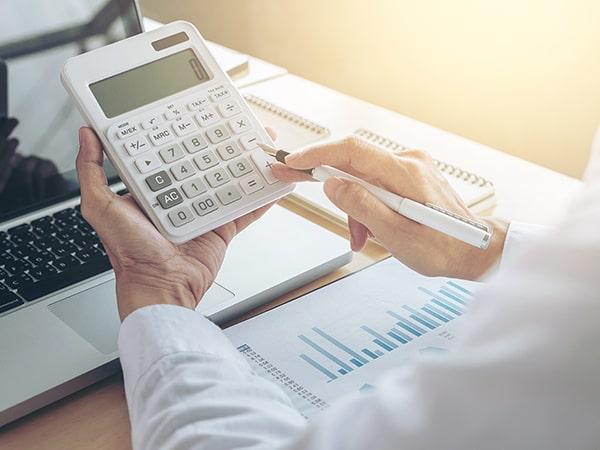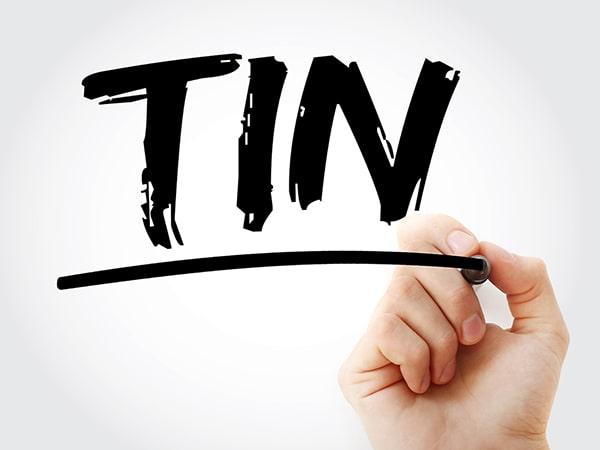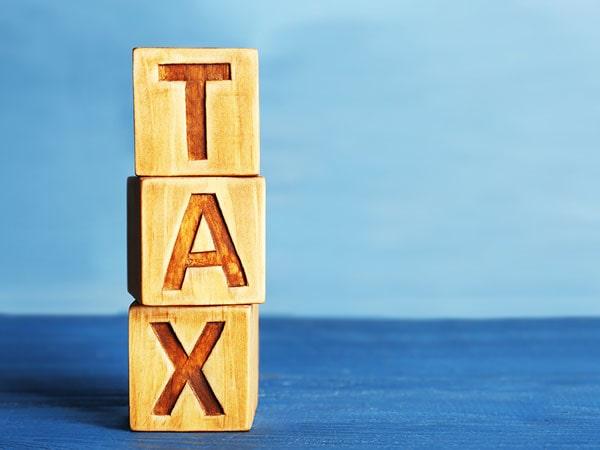Table of contents
It’s no secret that any registered business receives its unique figure for the purpose of identification by tax (state) authorities.
A taxpayer identification number (TIN ) in the global sense is a character that identifies an individual or legal entity for tax purposes (tax reporting). The definition of “TIN” is a generalized concept that covers various types of figures that can be used when contacting tax authorities. TINs are used in most countries around the world to identify individuals who pay taxes and to identify businesses that need to pay taxes. En outre, the TIN can be used to receive tax administration assistance.
Do UK companies have a TIN?
Have you ever wondered what is a TIN number in UK? The term “TIN ” or “ Tax.id number” is not specifically used in the UK in its strictest sense. HM Revenue and Customs (HMRC) issues two numbers. These UK TIN similar to a “general“ TIN (that we can find abroad UK, in EU countries), but we can call each of them company tax identification number UK. Cependant, when you register a company in the UK and it begins a partnership or cooperation for the sale of goods or provision of services to foreign businesses, it may be necessary to provide a tax ID number UK.
Quickly select a jurisdiction and register your company anywhere in the world online
Types of Taxpayer Identification Numbers
Have you ever thought what is my company tax identification number? How do they look in UK? As of today, there are two main types of unique corporate tax numbers in the UK, namely:
- Unique Taxpayer Reference (UTR);
- Company Registration Number (CRN).
It should be noted that the Unique Taxpayer Reference is completely separate from the company registration number. Each of them is used for completely different purposes. The UTR is mainly used for tax purposes. The CRN is also required to identify companies for official purposes. It is important to emphasize that when dealing with HMRC on corporate tax matters, it is often necessary to provide both UTR and CRN tax identification numbers UK.
Unique Taxpayer Reference (UTR)
The Unique Taxpayer Reference (UTR) is a type of company tax number which is also be referred as a corporation tax number that contains a unique 10-digit figures that is used for income tax purposes. In order to obtain a UTR number, you must complete an online self-assessment registration. To do this, the applicant will need to provide: name, date of birth and address, national insurance number, email address, work phone and other information, type of business in which your company will be engaged, and other details. All companies registered in the UK are assigned a unique tax identification number UK UTR by HM Revenue and Customs (HMRC).
This TIN will then need to be used in any correspondence with HMRC, as well as when submitting forms, company invoices, or paying income taxes.
UTR is a TIN that:
- Used for taxation;
- Required to identify companies for official purposes (may also be subject to TIN).
When will my company's UTR need to be used?
UTR can be used in such cases as:
- Registering a company for Corporation Tax;
- Incorporation a company for Value Added Tax (VAT);
- Registering a company for Pay As You Earn (PAYE);
- Payment of Corporation Tax;
- Payment of VAT;
- During the payment of salary to employees of the company;
- When filing an annual corporation tax return;
- At the time of filing the VAT return;
- When a company needs to inform HMRC of a business change;
- To inform HMRC that the company has become dormant;
- For correspondence with HMRC;
- To change the Corporation Tax accounting period.
If the income tax UTR has been completely lost, you can apply for a copy from HMRC. In your request, you must specify the company registration number and the registered name of the company. After successful processing of the applicant’s request, this UK TIN will be sent by mail to the registered address of the company, which was indicated in the Companies House.
It is important to note that there are instances where a company will not be able to request a copy of its UTR income tax. These situations include:
- official closing of the company;
- an absence of the company in the public register of companies at the Companies House;
- if the company has changed the legal form of the business model, and therefore is no longer a registered company.
Company Registration Number (CRN)

A company registration number (CRN) is a unique combination of 8 characters, consisting of either 8 digits or 2 letters followed by 6 digits. (CRN is assigned immediately after the registration of the company by the Companies House.
CRN confirms the legal existence of the company. According to the law, the disclosure of CRN on each official letterhead of the company is mandatory. En outre, This CRN should be on the company’s website, brochures, letterheads, invoices and emails. The CRN is displayed on the registration certificate and in all official correspondence of Companies House. In addition to being used for tax purposes, the CRN can also be considered a TIN.
When will I need to use my CRN?
CRN can be used in such cases as:
- statement of confirmation – submitted every year and contains a CRN to identify the company;
- CRN must be displayed on all company letterhead, including letterheads, websites, invoices, emails;
- Company accounts – filed every year with CRN;
- Corporate Tax – CRN must be provided when registering with HMRC.
- VAT – CRN is indicated when registering with HMRC;
- PAYE – CRN must be provided when registering with HMRC;
- Updating information about the company – in case of updating the data by the Registration Chamber;
- CRN must be used when filing a declaration of distribution of shares or when issuing share certificates.
- In the appointment and dismissal of directors or company secretaries;
- When opening a commercial bank account in the name of the company;
- In the case of a loan.
National Insurance Number (NIN)
National Insurance Number (sometimes referred to as a NI number or NIN) is a unique personal identification number that consists of 2 letters, 6 digits, and the last letter. NINs are issued either by the Department for Work and Pensions or HM Revenue and Customs.
NI number is usually given to UK residents 3 months before their 16th birthday. Everyone who wants to work in the UK must have a National Insurance Number. NIN will be active throughout the individual’s lifetime. Even if a person left the UK and returned a few years later, they will still use the same NIN that was originally assigned to them.
Speaking of business, all directors of British companies will have a NIN. The National Insurance Number links individuals in the UK to their tax returns, for tax deductions and any tax credits or refunds for which the applicant is applying. En outre, some government agencies may also ask for a NIN, such as National Health Service (NHS), Pension funds, or bank and lenders.
You can find your NIN:
- In payrolls;
- P60 shape;
- In any official correspondence that relates to taxes, pensions or benefit payments;
- In the corresponding online personal income tax office.
If it is completely lost, you can restore this NIN. To do this, you will need to restore form CA5403 and send it to the address indicated in the form. En outre, you can contact the National Insurance numbers helpline and answer some questions.
Employer Reference Number (ERN)
In most countries, the ERN is known as the Employer Identification Number (EIN). Cependant, in the UK, companies that register as an employer with HMRC receive an Employer Identification Number (ERN). The country’s tax office uses this figure to identify a business as an employer that has employees above the Pay-As-You-Earn (PAYE) threshold. If no employee is earning £120 or more per week, there is no need to register with PAYE. Accordingly, there will be no need to apply for an ERN.
The ERN can be found in any correspondence from HMRC, payroll, and tax credits.
VAT registration number

The VAT registration number is a nine-digit number. HMRC assigns a VAT registration number to businesses when they register for value-added tax. UK-registered business suppliers will have the prefix “GB” attached to their VAT registration number.
A VAT refund without a valid VAT registration number is not possible. To confirm if the VAT registration number is valid, you can contact HMRC to verify the information you have.
How to find out the company's tax number (TIN)?
In general, it is worth saying, that searching for a corporation tax number in the UK is a relatively simple process. If you want to find a company number, especially if we are talking about a TIN, you need to look at the documentation you have. So, the UTR can be found on any previous tax returns or other HMRC documents: filing notice and payment reminder. This type of TIN can also be obtained by logging into your online corporate tax account. If the income tax UTR number has been completely lost, a copy can be requested from HMRC. The CRN can be found on the Certificate of Incorporation or in any official correspondence from the Companies House. En outre, in the state register, when searching at the Registration Chamber, you can also see this figure.













